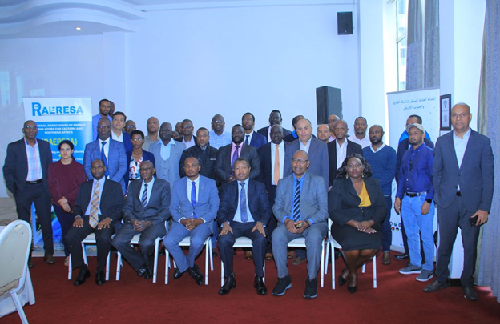
ADDIS ABABA – With a total capital of 1.5 million USD, the Common Market for Eastern and Southern Africa (COMESA) launched a regional initiative to enhance the sustainability of the electricity sector in Eastern and Southern Africa through harmonized regulatory frameworks.
The initiative dubbed as “Regional Harmonization of Regulatory Frameworks and Tools for Improved Electricity Regulation in COMESA,” aims at effective, transparent, uniform, and enforceable regulatory frameworks in the region. The ultimate objective is to stimulate cross-border electricity trade and improve energy access in the COMESA region, according to the press statement sent to The Ethiopian Herald.
Through her representative, Petroleum and Energy Regulatory Authority (PEA) Director General Seharla Abdulahi said that COMESA has been pivotal in fostering economic integration and development across member States.
“Energy, as the lifeblood of our economies and societies, is undeniably central to this progress. Harmonizing our regulatory frameworks is therefore not just an option, but an imperative.”
“By aligning our approaches, we can unlock the full potential of regional energy trade, enhance energy security, and ultimately improve the lives of our citizens.”
The director said that the stark reality is that 75% of the world’s population without access to electricity resides in Africa, she said adding the Eastern and Southern Africa, is not immune to this challenge. The gap between energy supply and demand continues to widen, affecting industries, businesses, and households alike. Without significant intervention, the region’s energy supply will not keep pace with rising demand driven by urbanization, economic growth, and population expansion, she added.
In Ethiopia, national grid remains concentrated in major population centers, limiting access to electricity for the vast majority of our rural population. Expanding electricity access to rural areas, townships, and commercial centers is a long-term necessity and essential for balanced socio-economic growth at the national and regional levels, the director said.
Secretary General East African Power Pool James Wahogo said that realization of the ultimate objective of this project contributes a great deal to our collective effort to deepen regional power system integration in the continent.
He added that the EAPP region has achieved certain milestones over the years towards its objective of enhancing power system interconnectivity, cross border electricity trade and institutional capacity. “We all need to do the needful to build on the momentum, while addressing recurring barriers to the broader effort to deepen power system integration in our region.”
Deepening regional power system integration in our region yet requires deployment of many more interconnection lines including concerted actions to allow for expansion of multilateral power trade and seamless operation of the regional grid formed through interconnection of the national power grids, the secretary general said.
RAERESA CEO Mohamedain E. Self Elnasr (PhD) said that COMESA has prioritized regional energy infrastructure development to ensure reliable and affordable energy access. This initiative acknowledges the crucial role of conducive regulatory environment and robust utilities in attracting private players and fostering competition, he added.
“COMESA is also collaborating with the World Bank to increase energy access (100 million people) and support the deployment of renewable energy.”
BY GIRMACHEW GASHAW
THE ETHIOPIAN HERALD SATURDAY 21 SEPTEMBER 2024





